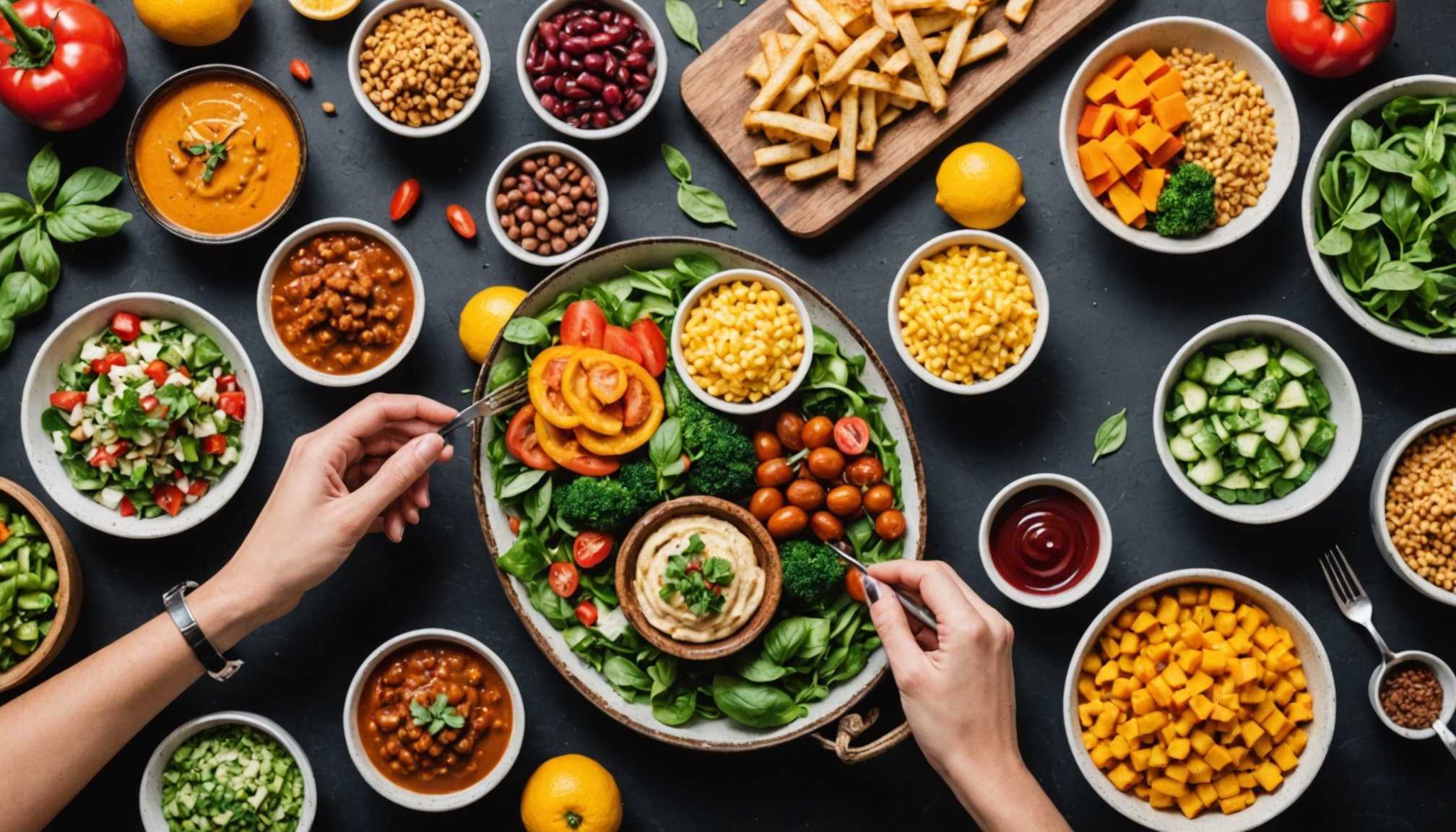Overview of Influencer Marketing for Vegan Brands
Influencer marketing has become a pivotal strategy for vegan brands. It leverages the power of influential personalities to reach audiences in a way that feels organic and trustworthy. This strategy is not just about promoting products but creating a narrative that aligns with vegan values, thus fostering customer loyalty.
In the current landscape, the vegan market is thriving, with significant influencer engagement contributing to its momentum. Influencers play a crucial role in connecting brands with ethically-conscious consumers. They offer a genuine, relatable voice that traditional advertising often lacks. By sharing personal stories and experiences with vegan products, influencers enhance brand authenticity.
This might interest you : Mastering email segmentation strategies for uk vegan skincare brands to boost engagement
Brand trust is another essential component built through these collaborations. Influencers help in bridging the gap between brands and consumers by providing honest reviews and insights. This relationship encourages potential customers to make more informed choices, thereby boosting customer loyalty.
As trends evolve, vegan brands continue to innovate their approaches to influencer marketing, ensuring they resonate with a growing audience passionate about sustainability and ethical living. Understanding these dynamics can empower brands to cultivate deeper connections and create impactful campaigns that are both authentic and effective.
In the same genre : Mastering twitter strategies for uk financial startups: connect with industry trends effectively
Identifying the Right Influencers
Picking the right influencers is crucial for any brand’s success. Understanding influencer selection begins with focusing on characteristics that make an influencer effective. For instance, vegan influencers need credibility within the community. This includes consistent messaging and authentic lifestyle alignment with vegan values.
Researching and vetting influencers require attention to niche engagement. Tools like social media analytics can reveal how actively an influencer interacts within their niche. Examining engagement metrics such as comments and shares rather than just follower count provides insight into their influence on the audience.
Another critical factor in influencer selection is audience alignment. Ensure the influencer’s followers overlap with your target demographic. This will maximise the brand impact. Explore past campaigns to see how influencers received by similar audiences. It’s about connecting with an audience genuinely invested in your niche.
Aligning brand values with influencer personas solidifies a cohesive partnership. Brands should assess whether an influencer’s ethos complements their mission. This not only influences the success of campaigns but also maintains authenticity and trustworthiness.
These methods help build strong, authentic collaborations that resonate deeply with the intended audience and reflect positively on the brand.
Crafting Effective Campaigns
Navigating the world of campaign strategies requires a nuanced approach to align with a brand’s identity while catering to specific audiences such as vegans. Starting with a robust strategy, it’s essential to weave together creative content with the core values and aesthetics of the brand. This not only boosts visibility but also cultivates authenticity.
When developing content, consider elements that will resonate deeply with vegan audiences. Examples include showcasing plant-based recipes or collaborating with influencers known for their ethical lifestyle. This kind of tailored content fosters a connection that audiences find relatable and share-worthy.
Beyond creative content, implementing engagement tactics is crucial. Encouraging interaction can be as simple as hosting a social media challenge or creating shareable graphics that invite users to express their individuality. For instance, interactive polls or questions about sustainability can drive dialogue and reinforce community among followers.
Remember, an effective campaign is not solely about the content presented but also about creating spaces for digital conversations. By integrating strategic engagement techniques, brands can amplify their reach, promoting a message that is not only heard but also echoed and shared across communities. The goal is sustained interaction and an ongoing dialogue with the audience.
Building Long-Term Partnerships
Fostering long-term relationships with influencers is crucial in today’s digital marketing landscape. These connections go beyond simple promotional exchanges, leading to sustained engagement and trust. When brands focus on effective relationship management, they create an environment where influencers become brand advocates rather than mere participants in isolated campaigns.
To maintain such partnerships beyond one-off efforts, consider strategies like regular communication, shared goals, and consistent support. Engaging influencers in ongoing projects or involving them in a brand’s creative processes nurtures their commitment and enthusiasm. Regular meetings and feedback loops strengthen the ties, allowing both parties to adapt and grow together.
The collaboration benefits are significant for both brands and influencers. Brands gain from influencers’ established reach and credibility, while influencers enjoy access to exclusive content, products, or experiences. This mutual benefit fosters a sense of belonging and shared objectives, which is central to a successful influencer partnership.
Ultimately, thoughtfully structured partnerships generate authentic connections and enhance brand loyalty. By treating influencers not only as allies but as integral collaborators, brands can achieve both immediate and sustained impact in their marketing efforts. Emphasising these partnerships will ensure longevity and mutual growth in an ever-competitive market.
Measuring Campaign Success
In influencer marketing, understanding campaign metrics is crucial for assessing effectiveness. Key performance indicators (KPIs) like engagement rates, reach, and conversions provide insight into a campaign’s success. Evaluating these KPIs helps in performance analysis, determining whether the campaign meets its objectives.
ROI evaluation plays a significant role in ascertaining financial success. Return on Investment (ROI) measures how well resources are utilised against the campaign’s outcomes. A positive ROI indicates favourable results, whereas a negative one demands strategy adjustments.
Various tools facilitate tracking these metrics. Analytics platforms, social media insights, and third-party software offer real-time data on KPIs. Operations like monitoring user interactions or tracking conversion rates improve the quality of performance analysis.
To interpret performance data effectively, exploring patterns and correlations is essential. For instance:
- High engagement but low conversion might suggest content interest but weak calls-to-action.
- Wide reach with minimal engagement could indicate issues with audience targeting.
Analyzing these aspects helps identify strengths and weaknesses. This informs future strategy, ensuring enhancements in alignment with desired outcomes and campaign goals. Consequently, aligning campaign metrics helps refine strategies that bolster success and optimises ROI.
Practical Tips for Collaborating with Influencers
When engaging in influencer collaboration, adhering to certain best practices can significantly enhance the success of your partnership. It is crucial to understand the dos and don’ts to facilitate a smooth working relationship.
Dos:
- Effective communication is paramount. Establishing open dialogue ensures clear expectations and minimal miscommunication.
- Outline specific goals for your influencer campaign and share these with your partner. Objectivity and clarity foster mutual understanding.
- Maintain flexibility and be open to creative input from influencers, as they possess expertise in engaging their audience.
Don’ts:
- Avoid imposing excessive control or micromanaging the influencer’s work. Trust their knowledge of their audience and creative style.
- Refrain from ambiguous agreements. Iron out every detail—including deliverables, deadlines, and compensation—before proceeding.
To ensure clear expectations, it is advisable to use communication strategies like regular check-ins and feedback loops. These facilitate ongoing adjustment and alignment with campaign objectives, as circumstances evolve.
Successful influencer partnerships depend heavily on coordinating efforts effectively. Create comprehensive briefs that explicate the scope, timeline, and brand values. Such groundwork reduces misunderstandings and maximises the partnership’s potential synergy.
Case Studies of Successful Vegan Brands
Before delving into specifics, it’s important to note that several vegan brands have set exemplary case studies in the market, demonstrating intriguing success stories. Understanding these examples enables other vegan companies to adopt best practices effectively.
Case Study: Brand A
Brand A leveraged strategic partnerships with local farms to ensure a steady supply of high-quality ingredients. This move not only improved product quality but also strengthened community ties. Emphasising transparency and sustainable sourcing, they built a brand image that resonated with eco-conscious consumers. The outcome: a substantial increase in market share, proving the importance of aligning business values with consumer expectations.
Case Study: Brand B
Brand B introduced an innovative product line specifically targeting health-conscious individuals. Utilising data from consumer feedback, they tailored their marketing strategies, highlighting the nutritional benefits of their offerings. This focus on customer-centric innovation resulted in a doubling of their customer base within a year.
Case Study: Brand C
Brand C made headlines through an impactful social media campaign. Utilising influencers and engaging content, they tapped into new demographics. Their success story underscores the power of digital presence and community engagement, bringing lessons to light for budding vegan enterprises.
These case studies collectively illustrate how aligning with consumer values, innovation, and savvy digital marketing can propel a business to success, offering a blueprint for emerging vegan brands.
Trends and Future of Influencer Marketing
Emerging trends in influencer marketing are transforming how brands connect with audiences, especially in niches like the vegan space. With growing consumer demand for transparency and authenticity, influencers are increasingly leveraging these aspects to build trust. Brands are now focusing on strategic partnerships with influencers who align with their values, instead of those with just a broad reach. This enhances credibility and fosters community engagement.
Predictions indicate that the future of influencer marketing will see collaborations tied closely to consumer values and ethics. As consumers become more educated, they seek substantive connections and expect influencers to reflect their interests authentically.
Evolving strategies are crucial to staying competitive in this dynamic environment. Brands need to analyse data-driven insights to align their campaigns with industry trends. The shift from short-term engagements to long-term relationships encourages ongoing relevance and interaction between influencers and audiences.
Adapting strategies to evolving consumer behaviours ensures that influencer marketing remains effective and impactful. To succeed, brands must embrace change and innovate, utilising technologies like AI for personalised content. This approach enhances engagement and provides measurable results, highlighting the ongoing importance of influencer marketing as a tool for brand growth and consumer connection in the future.











